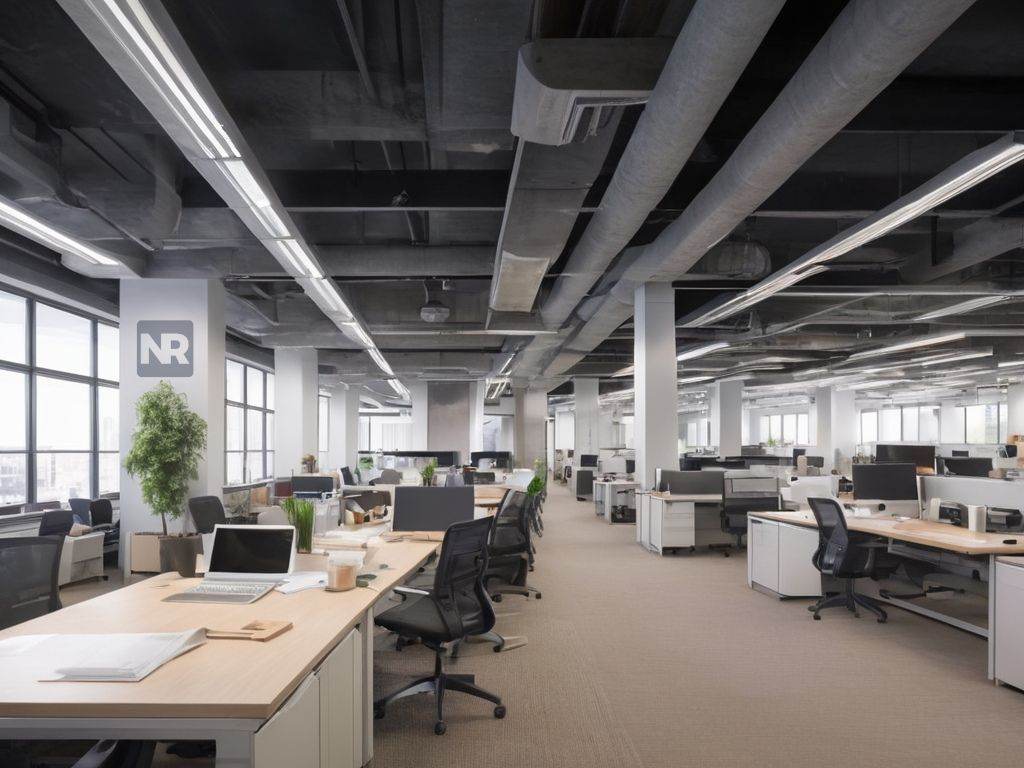
By: Admin
Feb 13, 2024
Navigating The Office Space Evolution In 2024: Embracing Flexibility Or Facing Extinction?
As we stride deeper into 2024, the realm of office space is experiencing unprecedented dynamism. Shaped by a convergence of shifting work dynamics, the aftermath of a global pandemic, and the burgeoning ascent of coworking spaces, the traditional office space market finds itself at a crucial juncture. This era of transition has ignited a pivotal discourse: Is the traditional office poised for resurgence, or teetering on the brink of collapse?
Reassessing the Role of Conventional Office Spaces
For decades, the traditional office has served as the bedrock of professional life. However, the rapid pivot to remote work during the pandemic and the subsequent emergence of hybrid models have prompted a reevaluation of its relevance and purpose. While some prognosticate a downturn in traditional office spaces, others envision a revival driven by the innate human craving for face-to-face interaction and collaborative synergy.
A recent study by JLL unveils a striking trend: 68% of surveyed companies express intentions to expand their physical office footprint within the next three years (JLL, 2023). This data hints at a resurgence in demand for traditional office spaces, propelled by enterprises that prize the unique dynamics of in-person teamwork, corporate ethos, and spontaneous innovation.
The Hybrid Work Paradigm
The advent of hybrid work models marks a seismic shift in the office space landscape. Hybrid work, which melds remote and on-site work, offers employees flexibility and work-life equilibrium, qualities highly coveted in today's workplace milieu. According to Gartner, an astounding 82% of company leaders surveyed are gearing up to accommodate part-time remote work arrangements (Gartner, 2023). This widespread embrace of hybrid models necessitates a reimagination of office spaces, transitioning from dense cubicle arrays to more adaptable environments conducive to both individual focus and collaborative endeavors.
The impact of the hybrid model transcends logistical considerations, permeating corporate culture, employee engagement, and even real estate strategies. Companies are tasked with crafting office environments that not only serve utilitarian functions but also entice employees away from the comforts of home offices.
Coworking Spaces: A Disruptive Catalyst
The ascendance of coworking spaces epitomizes the palpable evolution in the office space arena. These spaces, characterized by their flexibility, communal ethos, and diverse amenities, have garnered popularity among freelancers, startups, and even large corporations. The Global Coworking Growth Study projects a near doubling of coworking spaces worldwide by 2024 (GCUC, 2023), underscoring the transition towards more dynamic and community-centric workspaces.
Coworking spaces challenge the traditional office paradigm by offering a fusion of professional networking opportunities, collaborative dynamism, and the adaptability to scale according to business exigencies. This model caters not only to the gig economy and entrepreneurial ventures but also aligns with the burgeoning preference for work environments fostering well-being, innovation, and social interaction.
Observing Office Space Trends at Ground Level
The office space landscape in Everett, WA, mirrors the broader trends shaping the market. Shane Kidwell, founder of Think Tank Cowork, offers insights into the local market dynamics:
"In Everett, akin to numerous other locales, we witness a nuanced evolution in the office space market. While there exists a tangible interest in the traditional office setup, the demand for flexible coworking solutions is equally palpable. Our approach at Think Tank Cowork is to provide an office space in Everett, WA, encapsulating the best of both realms—offering the structure and privacy of traditional offices alongside the flexibility and community engagement inherent in coworking spaces."
Kidwell's perspective underscores the significance of adaptability and innovation in responding to the evolving demands of the office space market. By amalgamating elements of traditional and coworking spaces, enterprises like Think Tank Cowork are forging a path towards a novel office space model catering to the diverse needs of today's workforce.
Looking Forward: The Future of Office Spaces
The trajectory of office spaces in 2024 and beyond is unlikely to be dictated by a singular trend. Instead, a tapestry of work environments, from revitalized traditional offices and hybrid workspaces to pioneering coworking hubs, is anticipated. This diversity reflects the multifaceted nature of work in the digital era, accommodating varied needs spanning individual focus to collaborative synergy.
The challenge for businesses, real estate developers, and workspace providers lies in creating environments that not only fulfill functional requisites but also enrich the personal and professional lives of occupants. This may entail architectural innovations, technology investments, and a commitment to crafting spaces prioritizing health, sustainability, and community.
Furthermore, the role of location in office space decisions is undergoing a metamorphosis. The surge of remote work has liberated many positions from specific geographic constraints, prompting companies to reassess the strategic significance of their office placements. Cities like Everett, WA, with their blend of urban amenities and natural landscapes, may emerge as increasingly appealing destinations as businesses and employees seek environments offering professional opportunities and quality of life.
Conclusion
The office space conundrum in 2024 encapsulates the broader ambiguities and prospects of a world in flux. As we navigate the intricacies of post-pandemic work dynamics, the office—whether traditional, hybrid, or coworking—remains a pivotal component. It is evident that the most successful office spaces will be those adept at flexibly adapting to evolving business and workforce needs, fostering environments fostering innovation, culture, and growth.
In this dynamic landscape, the ultimate victors will be those who perceive office space not merely as a physical locale but as a strategic asset capable of propelling innovation, nurturing culture, and catalyzing growth. When the playing field tilts towards a more flexible leasing model, enabling large enterprises to empower their hybrid workforces and small companies to scale seamlessly, everyone emerges victorious—including the landlords.
Leave a Comment
LATEST POSTS

Eyeshadow In Spanish: Embrace The Hottest Colors And Techniques

Corporette: Empowering Professional Women

Deciphering The Enigma: Unveiling The Secrets Of Iamnobody89757

The Unforgettable Styles Of Bob Mackie Fashions

0960 What Network? An Inside And Out Examination

Mother's Day In Uae: A Genuine Festival Of Parenthood
